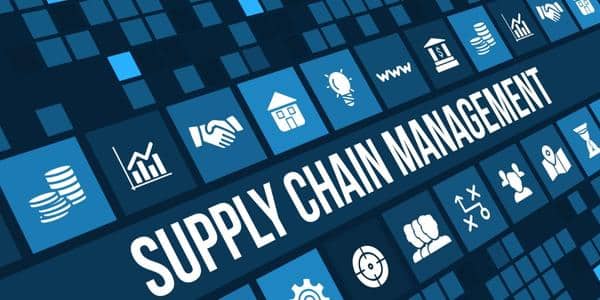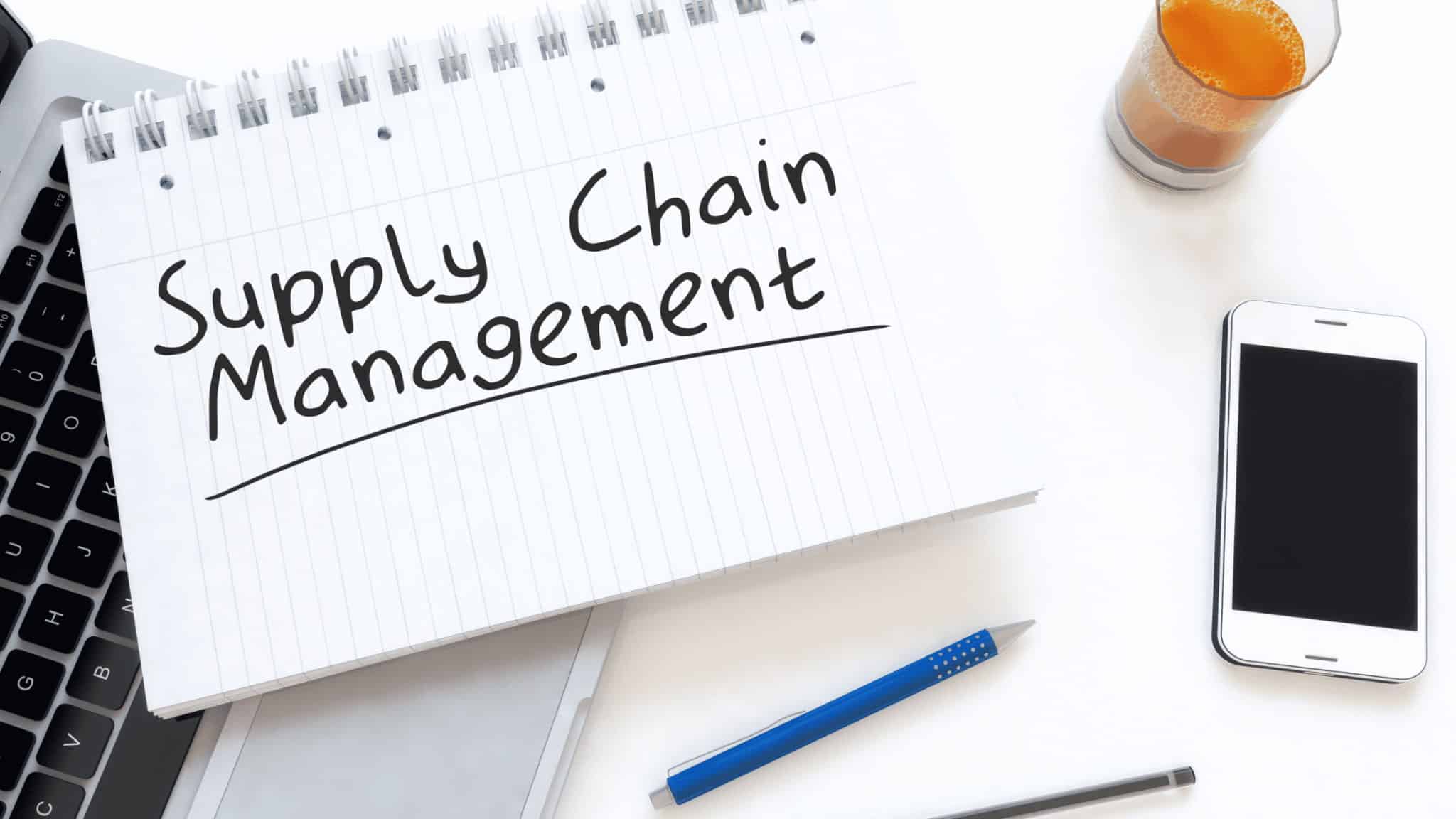The modern business environment demands that organizations manage their supply chain operations with the utmost efficiency and agility. In addition, this requires careful planning, coordination, and execution of various tasks across multiple departments and stakeholders. Fortunately, advancements in technology have made it possible to use Enterprise Resource Planning (ERP) system for supply chain management.
ERP systems are designed to integrate and automate various business processes, including supply chain management. In order to help organizations gain greater control and visibility over their operations. In this article, we’ll explore the vital role of ERP systems in supply chain management. And how they can help businesses achieve better performance and profitability.
Table of Content
- What is Supply Chain Ecosystem
- What is ERP System in Supply Chain Management
- Difference Between ERP and SCM
- The Vital Role of ERP in Supply Chain Management
- Competitive Benefits of ERP in Supply Chain Management
- 6 Ways to Utilize ERP System to Streamline Supply Chain Management
- Key Factors to Consider when Choosing ERP system for Supply Chain
- Challenges in Implementing ERP System in Supply Chain Management
- Streamline Supply Chain Management with HashMicro Core ERP
- Conclusion
What is Supply Chain Ecosystem

A supply chain ecosystem includes all the activities involved in the creation, production, distribution, and consumption of goods and services. The ecosystem comprises various stakeholders. Such as suppliers, manufacturers, distributors, retailers, customers, and regulators, who interact with one another to keep the supply chain running smoothly.
The supply chain ecosystem is dynamic and constantly evolving. Therefore, companies need to be agile and adaptable to stay competitive in the marketplace. One key tools used to manage and optimize supply chain ecosystems is an ERP system for supply chain management.
What is ERP System in Supply Chain Management
ERP system for supply chain management can help businesses achieve greater efficiency and productivity by streamlining processes and automating manual tasks. Moreover, an ERP system for supply chain management can also facilitate collaboration among different stakeholders within the supply chain ecosystem.
Difference Between ERP System and Supply Chain Management 
Enterprise Resource Planning (ERP) vs Supply Chain Management (SCM). These are two related but have distinct concepts in the realm of business management. While there is some overlap between the two, they serve different purposes and address different aspects of business operations.
ERP refers to a software system that integrates and automates various business processes, such as finance, accounting, human resources, and inventory management, into a centralized platform. The goal of an ERP system is to provide a single source of truth for business data, enabling organizations to make more informed decisions and operate more efficiently. While an ERP system may include a dedicated SCM component, it is a broader concept encompassing a wide range of functions.
The Supply Chain Management (SCM) module of an ERP software specifically focuses on the management of the flow of goods and services from raw materials to finished products and distribution to customers. The SCM module involves the coordination of various activities, such as procurement, production, inventory management, and logistics, to ensure the efficient and timely delivery of products to customers.
The Vital Role of ERP in Supply Chain Management
The relationship between ERP and supply chain management is closely intertwined. Supply chain management involves the planning and coordinating the flow of goods or services from suppliers to customers to meet demand commitments. In this context, ERP plays a crucial role in facilitating effective supply chain management. Such as managing the movement of goods within a business and linking supply sources with demand.
Supply chain planning
ERP systems play a crucial role in supply chain planning by providing businesses with real-time visibility and control over their supply chain operations. By generating accurate forecasts of demand, production, and inventory levels, ERP systems help businesses optimize their operations, reduce costs, and minimize waste. As a result, ERP vs. SCM in combination ensures that production aligns with demand and enables just-in-time replenishment.
Purchase, procurement and fulfillment
ERP streamlines procurement processes by automating purchasing activities, managing supplier relationships, and tracking inventory levels. Additionally, ERP systems provide real-time visibility into procurement activities and enable businesses to track purchase orders, monitor supplier performance, and identify potential supply chain disruptions.
Financing
Financial management is a crucial aspect of supply chain management. An ERP system that includes financial capabilities is instrumental in helping businesses manage credit limits negotiated with each node in the supply chain and maintain up-to-date payments in order to prevent credit freezes.
Customer service
An ERP system is instrumental in managing customer service in Supply Chain Management (SCM). In addition, by integrating customer service processes with other supply chain processes, ERP systems enable businesses to track customer interactions, access real-time customer data, and provide personalized customer service. With real-time visibility into customer interactions and data.
Monitoring and maintenance
By providing real-time visibility and tracking key performance indicators (KPIs), businesses can proactively identify potential disruptions and take corrective actions. Additionally, ERP systems automate routine maintenance tasks, such as equipment servicing, and provide predictive maintenance insights, enabling businesses to minimize downtime and reduce maintenance costs.
Competitive Benefits of ERP in Supply Chain Management
In modern supply chain management, ERP solutions play a valuable role in enhancing efficiency for all stakeholders, including suppliers and partners. Additionally, by automating the procurement-to-delivery workflow, ERP solutions reduce overhead and operational costs. They streamline the flow of materials, finances, and information from suppliers to customers, enabling retailers to control storage costs and meet customer demand.
Streamline workflow
By automating the flow of data between and within departments, an ERP system speeds up supply chain processes and minimizes the need for manual intervention. For instance, if the inventory of critical raw materials drops below set thresholds, the system can automatically notify purchasing teams.
Boost efficiency
ERP systems play a crucial role in enhancing the efficiency of supply chain management by providing a range of benefits. By automating the supply chain functions, companies can reduce manual efforts and streamline their operations. This not only saves time and resources but also reduces the likelihood of errors. Additionally, ERP systems improve the visibility of the supply chain by providing real-time data and analytics.
Enhance flexibility
In today’s dynamic supply chain, flexibility is crucial. Businesses must have the ability to promptly detect and react to sudden changes in supplier capacity, shipping routes, and customer requirements. Predictive analytics and scenario planning functionalities are beneficial to organizations in identifying and mitigating potential risks before they impact their operations.
Reduce overall costs
ERP software provides a centralized platform for supply chain operations. Which enables employees to access relevant data and information from anywhere and at any time. This flexibility allows employees to work remotely or from different locations, reducing the need for physical presence in the office or warehouse.
Increased customer retentions
ERP systems can help businesses enhance customer retention in supply chain management by facilitating better planning, streamlined production schedules and more accurate estimates of delivery dates. These gains help businesses ensure that they can reliably fulfill their promises to customers, which builds customer loyalty and retention.
Lower risks of IT issues
ERP systems are designed to integrate all the data and processes within an organization into one system. Therefore eliminating the need for separate systems for different departments. This integration leads to fewer errors and data inconsistencies, which can significantly reduce the risk of IT issues such as system crashes, data loss, or security breaches.
6 Ways to Utilize ERP System to Streamline Supply Chain Management
Effective supply chain management is critical for businesses to remain competitive and meet customer demands. With the advent of modern ERP systems, companies now have access to powerful tools that can streamline their supply chain processes and drive efficiency. Here are six ways businesses can leverage ERP systems to optimize their supply chain management
Planning
With the planning capabilities of ERP software, companies can anticipate inventory and production needs using factors such as sales forecasts, historical demand, and also seasonal variation. The software manages the manufacturing schedule to meet the volume of customer orders and guarantees that labor, machinery, and materials are accessible to maintain production running efficiently and on schedule.
Procurement
With ERP systems, companies can efficiently manage their procurement processes by centralizing the evaluation and approval of suppliers, tracking orders, and managing bids. By using procurement software, businesses can reduce costs by directing orders to pre approved suppliers and taking advantage of contract terms. Real-time dashboards and reports also provide a clear view of spending and supplier performance, allowing for informed decision-making.
Monitoring
Previously, monitoring a supply chain demanded manual consolidation of data from various systems. This tedious process was error-prone and hindered the acquisition of up-to-date information. However, by integrating supply chain data into an ERP system’s database, businesses can utilize real-time dashboards to monitor the performance of their entire supply chain.
Measurement
The ability to collect, analyze, and obtain actionable insights from data is crucial for effective supply chain management. ERP solutions offer extensive measurement and reporting capabilities that collect data from both internal and external sources. Businesses can use customizable dashboards and reports to monitor critical supply chain metrics and key performance indicators (KPIs). Including production cycle times, inventory levels, and supplier performance.
Inventory management
Companies can leverage advanced inventory management systems provided by ERP systems to ensure optimal inventory levels to meet production demands and customer orders. These systems can automatically trigger alerts for procurement teams to replenish inventory. Considering factors such as sales trends, predicted demand, supplier lead times, and current inventory levels.
Warehouse management of ERP system for supply chain
By integrating warehouse management systems (WMS) into ERP system, businesses can enhance warehouse efficiency. While also reducing costs, and ensuring timely order fulfillment. WMS can help companies monitor optimize warehouse space, track productivity, and enhance picking and packing efficiency, among other features.
Key Factors to Consider when Choosing ERP system for Supply Chain
When selecting an ERP system for supply chain management, companies need to consider various factors to ensure that the chosen system aligns with their specific business requirements and goals. The right ERP solution can enable companies to streamline their supply chain processes. While also Improving inventory management and enhancing collaboration across departments and with external partners.
Cost
Cost is a critical factor when choosing an ERP system for supply chain management. ERP systems can be expensive, so it is essential to understand the total cost of ownership, including implementation, maintenance, and support costs. Companies should also consider the return on investment (ROI) and how long it will take to recoup the costs of the ERP system.
Ease of Use
ERP system for supply chain management should have a simple and intuitive interface that allows employees to quickly and easily access the information they need. The easier it is for employees to use the system, the more likely they are to adopt it and incorporate it into their daily work routines. Therefore can lead to increased productivity and efficiency.
Integration
Integrating Enterprise Resource Planning (ERP) systems into Supply Chain Management (SCM) solutions can sometimes be costly and challenging to maintain manually. However, when SCM and ERP solutions are combined on a centralized platform, they share the same data model, making it easier and more efficient for them to work together.
Cloud readiness
With cloud-based ERP solutions, businesses can avoid the upfront costs of hardware and software installation, maintenance, and upgrades, as well as the need for an on-premises IT infrastructure. Instead, they can rely on a cloud service provider to handle these tasks and provide the necessary computing resources.
Maintenance support of ERP system for supply chain
When choosing an ERP system for supply chain management, it is essential to consider the level of maintenance support the vendor provides. This is particularly important as the system is critical to the company’s operations. And any disruption or downtime can significantly impact productivity and profitability. Adequate maintenance support can help prevent or quickly resolve technical issues.
Challenges in Implementing ERP System in Supply Chain Management
One of the main challenges in implementing an ERP system in supply chain management is the complexity of the process. Supply chain management involves multiple stakeholders, including suppliers, manufacturers, distributors, retailers, and customers. Each stakeholder may have different data formats, systems, and processes, making it challenging to integrate their data into a single system.
Additionally, ERP systems are often highly customized, which can increase implementation complexity and cost. Implementing an ERP system in the supply chain also requires changes in business processes, which can be difficult for employees to adapt to.
Furthermore, data quality is critical for the success of an ERP implementation in supply chain management. Poor data quality can lead to inaccurate inventory management, delayed deliveries, and increased costs. Therefore, it is essential to ensure that data is clean, consistent, and accurate before integrating it into the ERP system.
Finally, implementing an ERP system in supply chain management requires significant resources, including time, money, and expertise. It is important to have a well-planned implementation strategy, a dedicated implementation team, and executive support to overcome these challenges and ensure the success of the project.
Streamline Supply Chain Management with HashMicro Core ERP
HashMicro cloud-based ERP System for supply chain management that enables businesses to analyze demand, allocate resources, and schedule production to meet customer requirements while also controlling operating costs. Moreover, by integrating supply chain capabilities into HashMicro ERP, production data, financial information, inventory, and orders are updated in real-time.
Additionally, HashMicro offers demand planning and inventory management capabilities that help businesses accurately predict and analyze demand. While also creating replenishment strategies to maximize product availability and sales. Therefore, small businesses, as well as large corporations, can take advantage of HashMicro ERP manufacturing software to optimize production through scheduling of labor, machinery, and materials.
Conclusion
In conclusion, implementing an ERP system for supply chain management can provide numerous benefits. Including increased efficiency, improved collaboration, and better visibility into key processes. However, there are also challenges to consider, such as data integration, user adoption, and system maintenance. When evaluating ERP systems for supply chain management, it’s also essential to consider factors such as cost, ease of use, system integration, cloud-readiness, and maintenance support.
By choosing a solution like HashMicro ERP which is specifically designed for SCM and offers robust features and support, businesses can overcome these challenges and reap the rewards of a more streamlined and effective supply chain. To discover how Hashmicro can benefit your company and enhance your business processes, request a free demo of our cloud-based ERP today.


























































